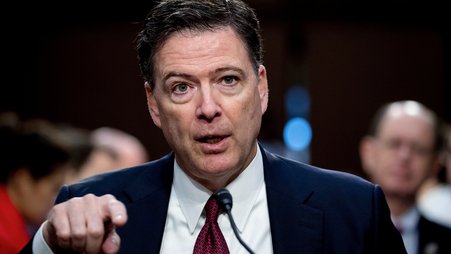Today marks 11 years since Edward Snowden — a longtime board member of Freedom of the Press Foundation (FPF) — blew the whistle on mass surveillance by the National Security Agency.
FPF and others wrote about the enduring impact of Snowden’s revelations in 2023, at the tenth anniversary. But this year, the uphill battle against surveillance encountered a serious setback. Congress not only renewed Section 702 of the Foreign Intelligence Surveillance Act, the law that enabled much of the surveillance Snowden exposed, it expanded it.
As Snowden himself put it, "In my opinion no country that has something like this to enter into force can still be considered to be free."
Under the newly enacted “spy draft” provision, the government can not only enlist telecom providers like Verizon to hand over information about their subscribers’ contacts with foreigners it is investigating, as it has in the past. It can conscript any American service provider to spy on its behalf. Sen. Ron Wyden noted that cleaning services could be compelled to insert a USB thumb drive into a server at an office they clean.
Although lawmakers claim they’re only planning to use these powers against a particular class of businesses, they won’t publicly identify the target (even after The New York Times reported that it’s data centers). That means that whatever the government’s current intentions are, it has no control over how future administrations will apply the law.
The law carries a terrifying potential for abuse against journalists, in particular. Reporters constantly communicate with foreign sources, including people who aren’t on the National Security Agency’s good side. Given that existing surveillance authority under Section 702 has been repeatedly misused to surveil reporter-source communications, it would be naive to believe expanded authorities won’t be similarly abused.
In addition to expanding the kind of surveillance that Snowden exposed, the government is also escalating its retaliatory prosecutions of whistleblowers like Snowden, as well as others who disclose government secrets.
Former IRS contractor Charles Littlejohn received the maximum sentence of five years’ imprisonment earlier this year after pleading guilty to leaking Donald Trump’s returns to The New York Times. Littlejohn also leaked a tranche of ultrawealthy Americans’ tax documents to ProPublica, but prosecutors and the judge did not consider the public good his disclosures served when throwing the book at him. Compare that to the kinds of tax fraudsters he exposed, who often get slaps on the wrist if they’re even prosecuted at all.
Shortly after Littlejohn was sentenced, Joshua Schulte, who leaked CIA secrets known as the Vault 7 leaks to WikiLeaks in 2017, was sentenced to 40 years in prison – six years and eight months for child sexual abuse images and the remaining 33 years and four months for the leaks themselves. Schulte is far from a sympathetic figure and deserves to be in prison, but the imbalance of his sentence is a disturbing reflection of the government’s priorities.
Meanwhile, the Biden administration has steadfastly refused to drop the Trump-era prosecution of WikiLeaks founder Julian Assange for communicating with a whistleblower — Chelsea Manning — and publishing government secrets he obtained from her.
Snowden has joined press freedom and civil liberties organizations, law professors, leading newspapers, and plenty of others in calling on everyone who values First Amendment freedoms to loudly oppose the unprecedented and highly dangerous prosecution.
In addition to its alarming implications for journalists’ First Amendment freedoms, the case has become an embarrassment to the United States on the world stage, especially after the U.K. High Court rejected supposed assurances by the U.S. that the First Amendment would adequately protect Assange if he’s tried in an American court.
And Assange’s case isn’t the only troubling use of the Espionage Act in the news — The Dissenter reported this week that the government is prosecuting a student for flying a drone near a naval shipyard. A news photographer could be next.
Those are only a few of many recent examples of the government overstepping, both in surveilling Americans and in punishing people like Snowden who embarrass officials. Legendary whistleblower and FPF co-founder Daniel Ellsberg often highlighted the increasingly dire situation faced by modern-day Espionage Act defendants, no matter how pure their motives or how important their revelations.
Times have changed since the Snowden revelations, and these days many take for granted that corporate and government actors regularly invade their privacy. That might be true, but it shouldn’t diminish our outrage. We should remember the sense of alarm we felt when Snowden showed us the scope of the government’s illegal surveillance of Americans and we should continue fighting back, even more aggressively than in 2013.





